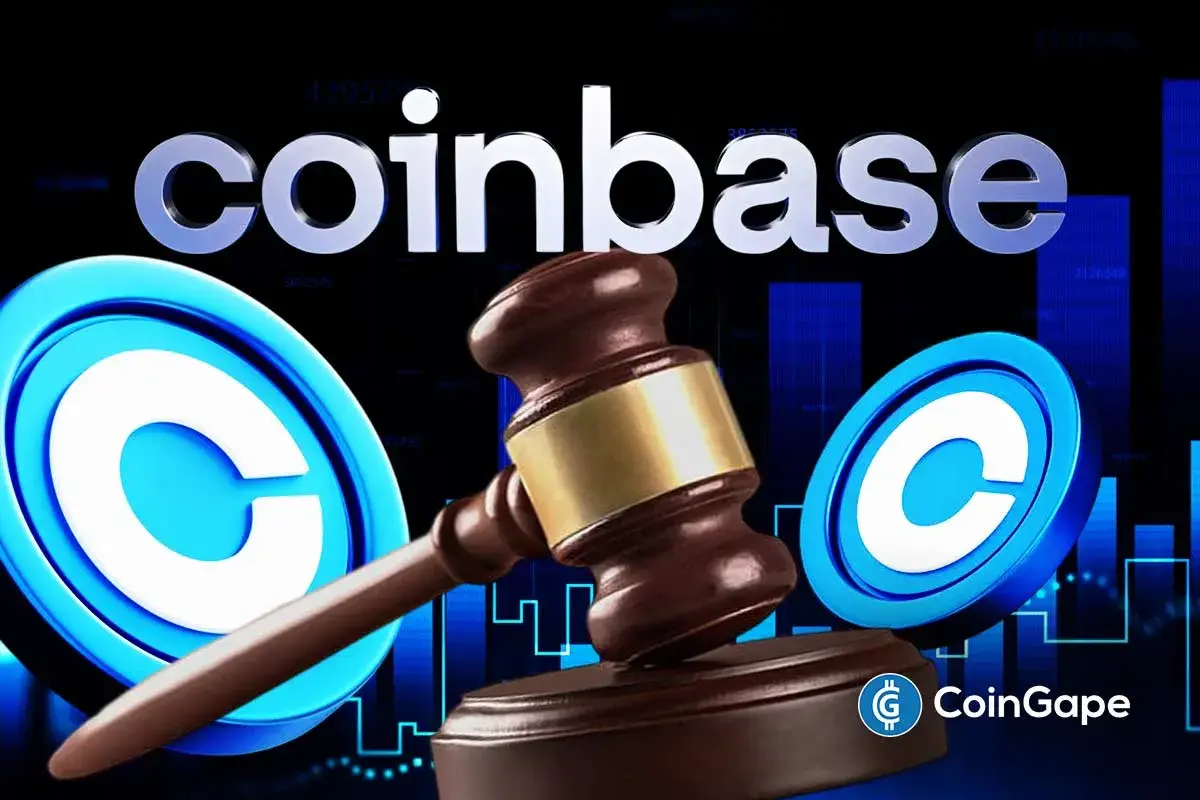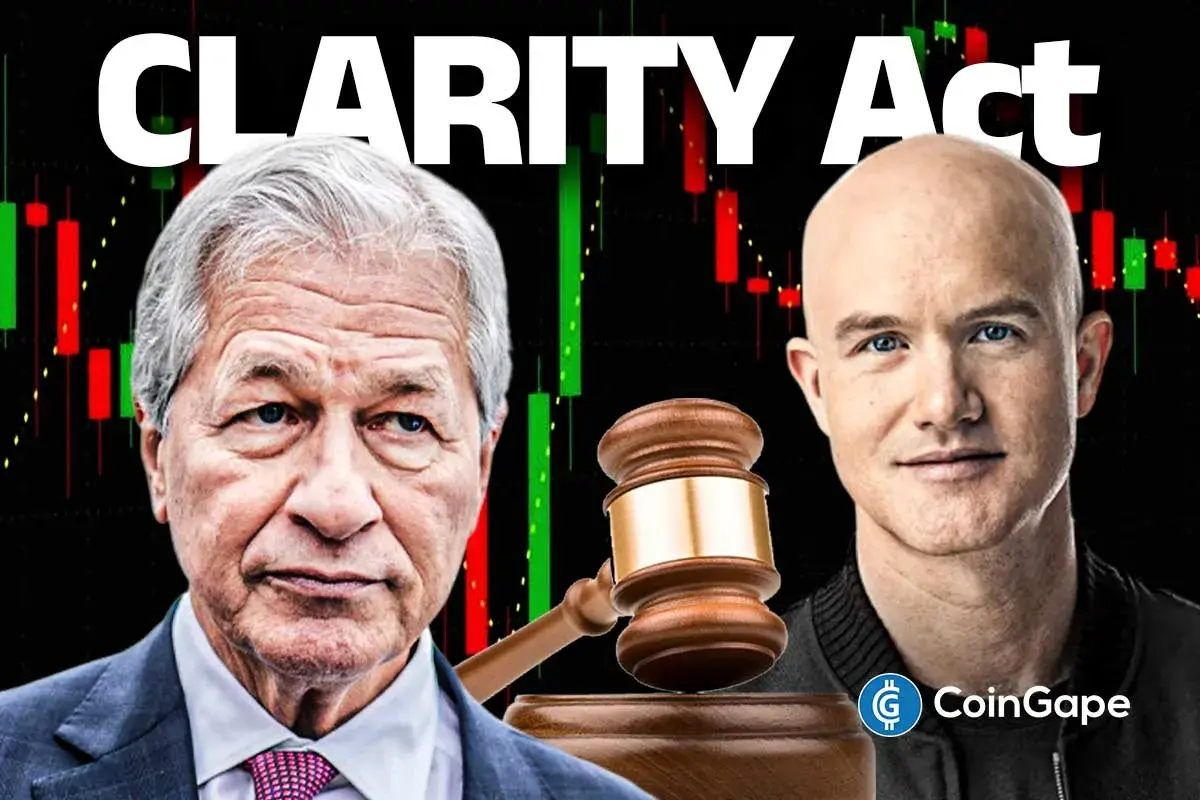Coinbase CLO Urges WSJ Data Correction After Treasury Clears Hamas Of Crypto Terrorism

Highlights
- Coinbase CLO Paul Grewal urged the Wall Street journal to provide correction on data related o Hamas' crypto use.
- Grewal warned against the implications of such misinformation in framing crypto regulations.
- The U.S. treasury highlighted that Hamas primarily relies on traditional financing options.
Coinbase Chief Legal Officer (CLO) Paul Grewal is urging the Wall Street Journal (WSJ) to correct its record following recent statements from U.S. Treasury officials affirming that Hamas has not been involved in terrorism via crypto financing. Furthermore, the Coinbase CLO expressed that such misinformation could lead to misleading decisions while framing the regulatory framework for crypto.
Coinbase CLO’s Stance On Misleading Data By WSJ
In a post on X Grewal emphasized Treasury’s stance, stating, “Treasury could not have been clearer that when it comes to illicit finance, cash is king.” Moreover, Coinbase CLO attached a video wherein U.S. Congressman French Hill said, “Just yesterday, here in this room, Undersecretary Nelson testified that bad actors still prefer to use traditional finance rather than digital assets.”
When will we see the record corrected @WSJ? 3/3
— paulgrewal.eth (@iampaulgrewal) February 15, 2024
Additionally, Grewal referenced successful international collaboration with Israeli law enforcement, quoting Mr. Nelson’s confirmation of prior reports that limited use of crypto by Hamas ahead of attacks against Israel. He warned against the spread of misinformation about crypto, asserting, “Misinformation on US-based crypto isn’t just irresponsible – its potential to sway policy can be dangerous to national security.”
To conclude the thread on X, the Coinbase CLO questioned WSJ and wrote, “When will we see the record corrected?” Grewal’s call for correction comes in response to a previous WSJ report that suggested Hamas was involved in crypto terrorism, a claim now contradicted by Treasury statements.
Also Read: JPMorgan Upgrades Coinbase as Bitcoin Surges
What’s The WSJ & Hamas Crypto Use Controversy About?
The U.S. Treasury undersecretary for terrorism and financial intelligence, Brian Nelson, testified before the House Financial Services Committee, asserting that the reported ties between crypto payments and terrorist groups were misconstrued. He stated, “We don’t expect the number is very high,” referring to the actual amount of crypto assets reaching these groups. Thus, debunking the WSJ data that tens of millions of dollars worth of crypto were used by Hamas for terrorism.
Despite initial claims, Nelson clarified that terrorists primarily rely on traditional financial channels for support. He noted, “Terrorists still prefer, frankly, to use traditional products and services.” Moreover, Representative Tom Emmer pressed Nelson on the issue, prompting him to affirm that the relationship between digital assets and terrorism is not as significant as previously reported.
Furthermore, Emmer urged the Treasury to formally correct the record, citing concerns about legislative decisions being based on inaccurate information. Nelson emphasized the need for enhanced tools and resources to combat illicit finance in virtual asset markets, expressing a willingness to collaborate with Congress on addressing these challenges.
Also Read: Coinbase Stock Rallies 7% Pre-Market, Will Earnings Beat Wall Street Estimates?
- Will Bitcoin Crash Again as ‘Trump Insider’ Whale Dumps 6,599 BTC
- XRP News: Ripple’s RLUSD Gets Boost as CFTC Expands Approved Tokenized Collateral
- Crypto Markets Brace as Another Partial U.S. Government Shutdown Looms Next Week
- $40B Bitcoin Airdrop Error: Bithumb to Reimburse Customer Losses After BTC Crash To $55k
- ETH Price Fears Major Crash As Trend Research Deposits $1.8B Ethereum to Binance
- Cardano Price Prediction as Midnight Token Soars 15%
- Bitcoin and XRP Price Outlook Ahead of Crypto Market Bill Nearing Key Phase on Feb 10th
- Bitcoin Price Prediction as Funding Rate Tumbles Ahead of $2.1B Options Expiry
- Ethereum Price Outlook as Vitalik Buterin Sells $14 Million Worth of ETH: What’s Next for Ether?
- Solana Price at Risk of Crashing Below $50 as Crypto Fear and Greed Index Plunges to 5
- Pi Network Price Prediction Ahead of PI KYC Validator Reward System Launch















